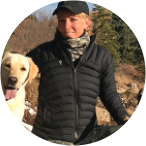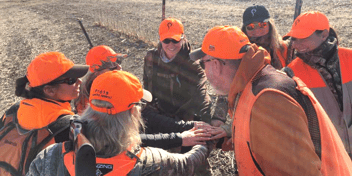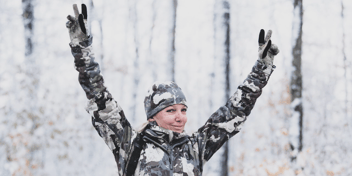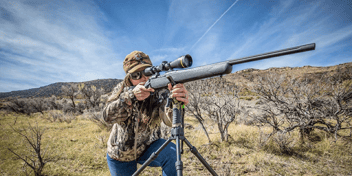
As I have gained hunting experience, I have found the confidence to get out and hunt by myself. I actually really enjoy it at times...
I started solo hunting for ducks and geese. As time went on, I found myself elk hunting and mule deer hunting solo. While my skills pale in comparison to those of my husband who had been a guide for 20 years, I have become excited with my own progress. Interestingly, as I have posted about my solo hunts on social media, many women have become interested in learning tips to become efficient and successful solo hunters.
While I hardly consider myself an expert on anything at any time…I do have one thing going with me. I learn from my mistakes. I am somewhat hard on myself when I do make a mistake or a misjudgment when hunting. I tend to focus on that and try to find ways to avoid that particular incident in the future. With that, most of my tips and suggestions did, in fact, come from my own experiences.
Know Where You're Going
While this seems like simplistic advice, it really is quite important. I for one have a terrible sense of direction. It really helps me get my bearings when I study an area map if I am hunting in an unfamiliar location. That said, I highly recommend using a GPS system like OnXmaps. This program can be purchased and downloaded to a smartphone. However, I highly recommend purchasing the chip for a hand-held GPS if your hunt will be where there is little or no cell service. I find this system useful for marking important waypoints as well as helping me identify private property lines. Ok, I also cannot lie. I had to use it one time to find my truck. Don’t judge.
Optic Accessibility
I cannot stress how important it is to keep your optics handy and easy to find. Personally, I prefer a chest binocular case such as Badlands. In my opinion, they tend to keep my binoculars secure and protected more than regular binocular straps. Regular binocular straps tend to be made for men and I have yet to find any that keep my optics from swinging and getting caught on trees and fences. The chest packs tend to feel much more secure. Additionally, I have found them to be helpful in keeping the glass from fogging when it rains or if, Heaven forbid, I am extremely sweaty. Side tip- I can keep my cell phone in the inside pocket as well.
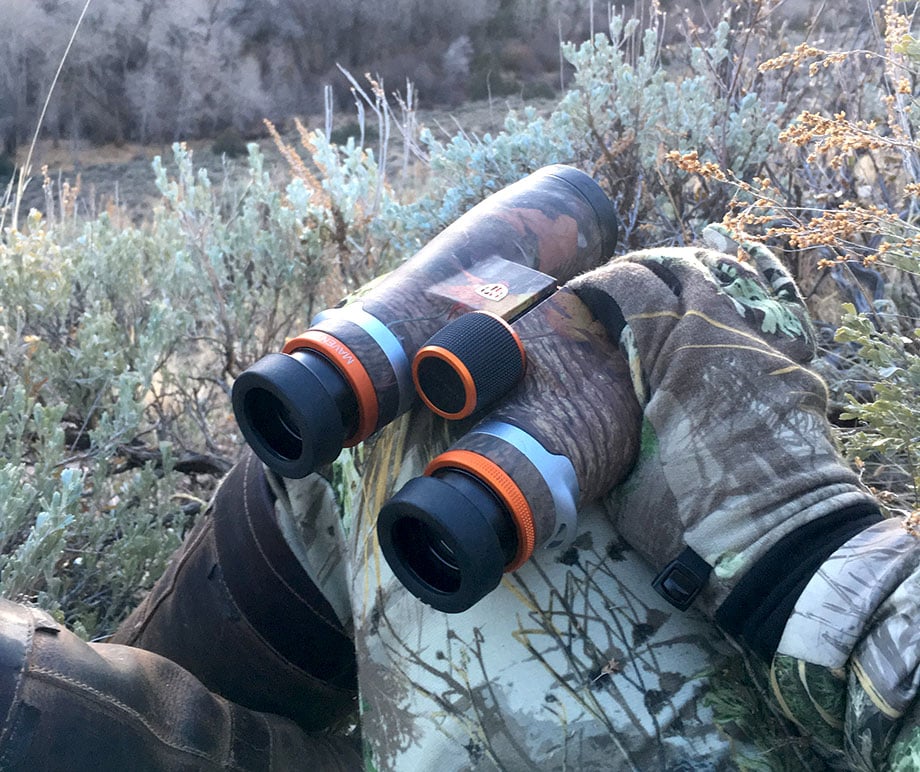
Keeping a range finder in a location that is quickly accessible is also extremely important. Often, when I am hunting with my husband, I rely on him to help me range distances. When solo, I keep my rangefinder tucked behind my chest case so I can quickly get to it without digging in pockets or my backpack. For me, this leaves my chest case my go-to point for binoculars, range finders, and my cell phone. I have found it to be far more efficient when trying to glass and range by myself.
And yes, this also means that I learned the hard way not to keep my range finder in my backpack. Enough said.
Pack Efficiently
When I am hunting for a day, I have found it very inefficient to overpack my pack. I recommend a minimalist approach here. Just take what you are going to need. I pare my pack down to the following; knife, knife sharpener, nylon cords, game bags, zip ties, small snacks, fire starter, and water. Beyond that, there is not typically much use for more. Keeping your pack light reduces fatigue. Additionally, should you be packing out by yourself, you will need as much pack space and support as possible. I have seen people hunting with literally a 50# pack when they are hunting just for the morning. I am trying to envision what use the kitchen sink would have on a mule deer hunt, but by God, it had to have been in there.
Shooting Sticks
Mercy me…if you are using sticks, for the love of God and all things Holy, make sure they are easily accessible at all times. I keep them in my backpack, but they are zipped in to be exposed on the right-hand side so I can reach straight back and pull them out without removing my pack.
Dress in Layers
High country hiking and glassing will result in a couple of things; (1) sweating followed by (2) chilling from sweating. I recommend Merino wool baselayers. Period. Down insulation jacket and a Windstopper/waterproof shell are a must as well. All of which can compress easily into a pack if necessary. Don’t overpack but ensure you have what you need for whatever inclement conditions might arise that day.
Ammunition on Hand
Okay, so I learned this one the hard way too. I highly recommend loading three rounds into the rifle. Then ALWAYS carry an additional three rounds in your front right pants pockets. While no hunter ever wants to have to use more than three rounds to take down a deer at a distance, it is not all that unusual. When hunting solo, there is no one to help hand you additional rounds, and putting them in your front right pocket allows you the quickest access for a rapid reload should that become necessary. Failure to do so can result in inefficient reloading and worse, loss of an animal.
Tune In
I learned fairly early in my solo hunting adventures that I really relied on my husband so much to be my eyes. While I have always glassed and looked, I believe I subconsciously always knew he would be the first to locate an animal. Hunting solo has enhanced my confidence and ability in locating animals and determining key places to watch and glass. It has also helped me determine new knowledge in where animals bed down, feed, and move at different times of the day. That’s not to say I wasn’t taught all of this, it simply brings home the learning experience.
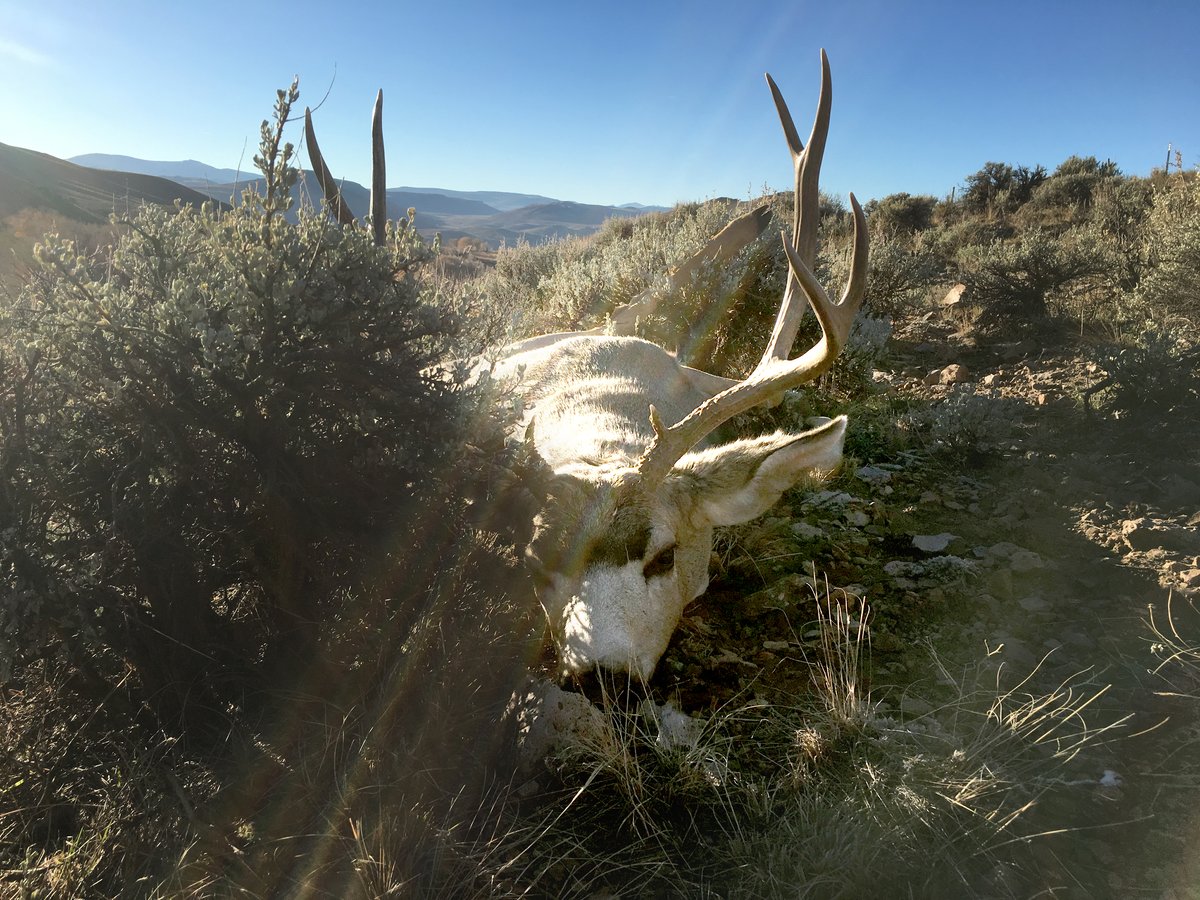
Look Backwards Often
Don’t laugh, but I have a terrible sense of direction. I have tried to improve this, but honestly, I can become lost just about anywhere. In addition to taking a GPS and marking important waypoints, I simply found that stopping to take a look backward really helped me keep my locations straight. Looking backward actually helps me note landmarks and views from the direction I will most likely be taking when I am heading back out of the high country.
Let Someone Know Exactly Where You Will be Hunting
While this sounds simplistic as well, accidents happen. Stay very close to the areas you planned to hunt. Should something unfortunate happen, you will be much easier to find. And yes, I may have ventured out a bit too late on one occasion only to have a very frustrated husband once I was able to make contact.
First Aid Kit
Always. I keep a very small, efficient kit in my pack. This includes basic bandaging supplies. I keep a small bottle of iodine tabs that I can use with water to cleanse wounds. I keep a small suture set. SAM splint and ACE bandage. I also keep a few tabs of Ibuprofen and stronger pain meds if needed. Knowing simple first aid is extremely helpful. Especially if you are solo.
Use a Compass
It is always helpful to have skills with compass use when hunting solo. While finding your way out of the mountains in Colorado is fairly simple…head downstream until you find something or someone…it is not at all that easy in other regions.
Packing Out Your Meat
Hunters tend to have different schools of thought on how they prefer to field dress an animal. Some prefer quartering. Some prefer gutting and taking the entire carcass. There is no right or wrong way to this…just personal preference. My only suggestion is that if you are hunting solo, be versed in field dressing. It’s a difficult thing to fumble through if you are not prepared. Personally, we quarter the animal and debone as much as we can for ease of packing out on our backs. If we have horses on hand, we will often not worry about deboning until we get home.
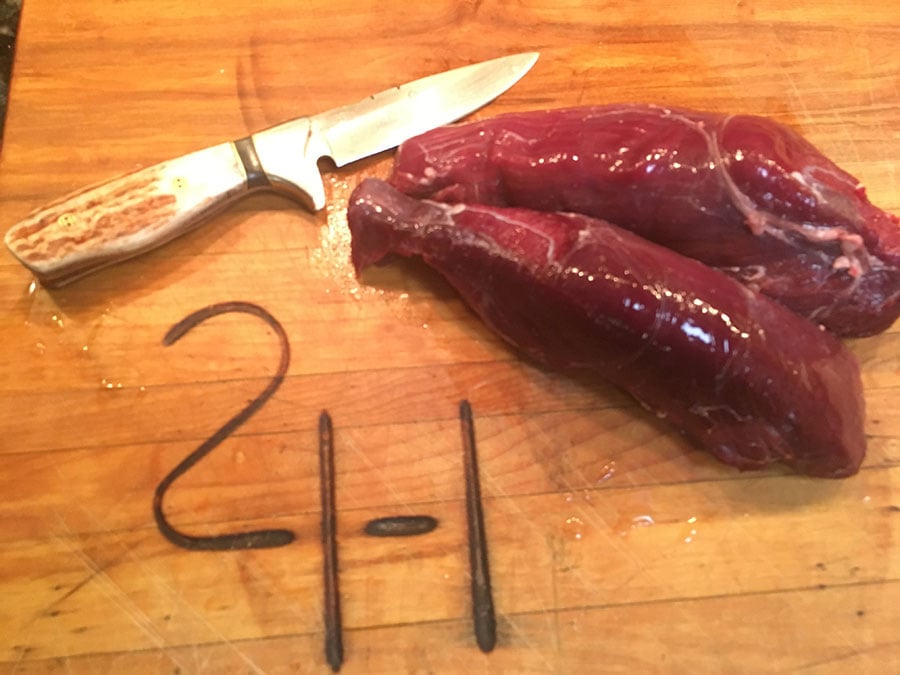
So there it is! Women can indeed hunt the high country solo. I highly encourage it and don’t be afraid to try.
There isn’t much more to say about this other than get out and push your comfort level. It is often thought that women seldom hunt alone. The truth is this, many women do. This may be because of personal preference or the fact that there is no one to go with them. Take smaller outings at first, then extend the range.
Trust me, this will be a very empowering experience. Go forth and conquer!
About the Author
